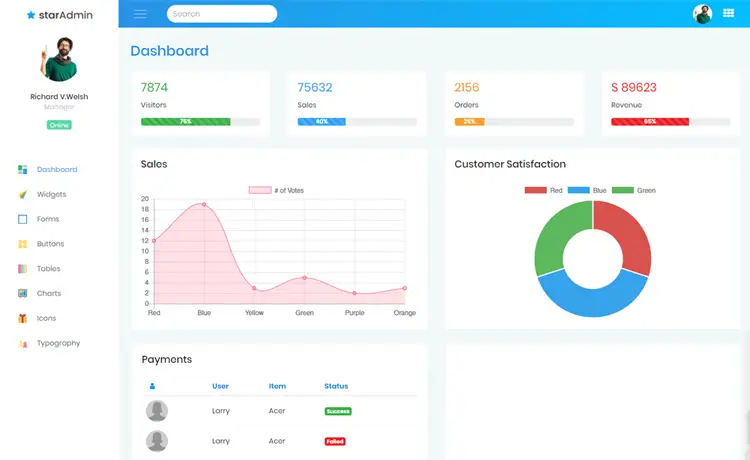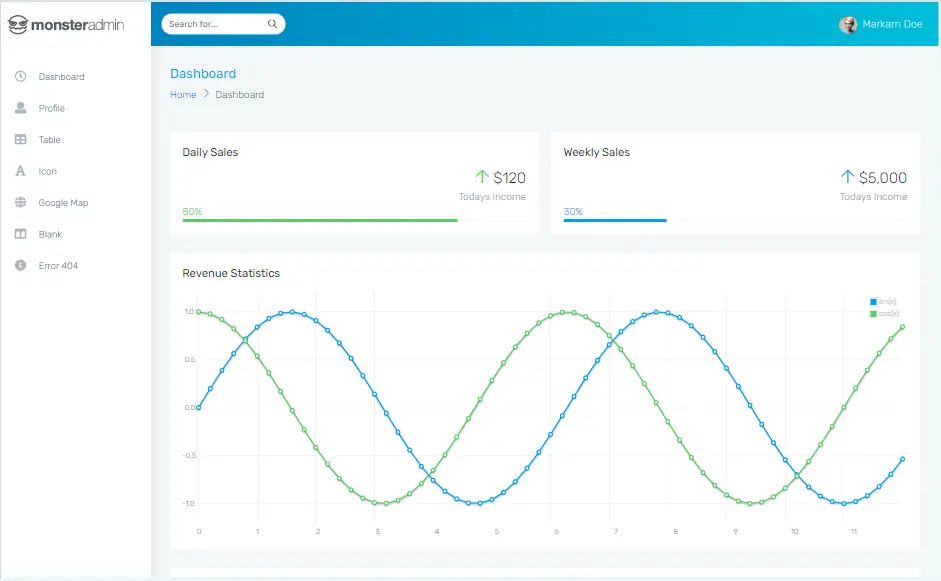How to validate an IP address in C#
By Tan Lee Published on Dec 24, 2024 1.31K
The IPAddress.Parse() method takes a string representation of an IP address and attempts to convert it into an IPAddress object. If the string represents a valid IP address, it returns an IPAddress instance.
However, if the string cannot be parsed into a valid IP address (whether it's an invalid format or type), Parse() throws a FormatException.
C# IPAddress from string
To create an IPAddress from a string, you need to use the System.Net.IPAddress class.
For example, c# ipaddress from string
System.Net.IPAddress ipaddress = System.Net.IPAddress.Parse("127.0.0.1"); // Example: 127.0.0.1C# IPAddress.Parse
The IPAddress.Parse method is used to convert a string representation of an IP address into an IPAddress object.
For example, c# ipaddress.parse
using System.Net;
IPAddress ipv4 = IPAddress.Parse("192.168.0.11"); // c# ip address
Console.WriteLine($"Parsed IPv4: {ipv4}");
IPAddress ipv6 = IPAddress.Parse("0:0:0:0:0:0:0:1"); // ipaddress tryparse
Console.WriteLine($"Parsed IPv6: {ipv6}");Output:
Parsed IPv4: 192.168.0.11 Parsed IPv6: ::1
As shown, Parse() successfully handles both IPv4 and IPv6 addresses. However, if you pass an invalid string (e.g., "192..12" or "Invalid IP"), the method will throw an exception.
To avoid exceptions and handle invalid input more gracefully, you can use IPAddress.TryParse().
For example, c# ipaddress tryparse
using System.Net;
var input = "192..11"; // Invalid IP address
// c# ipaddress tryparse
if (IPAddress.TryParse(input, out IPAddress ipv4))
{
Console.WriteLine($"Valid IP: {ipv4}");
}
else
{
Console.WriteLine("Invalid IP address");
}Output:
Invalid IP address
In this example, the invalid string "192..11" is gracefully handled by TryParse(), which returns false and avoids throwing an exception.
In many cases, especially when handling user input, you may want to strictly validate IPv4 addresses in the common 3-dot format (e.g., "192.168.0.11") and reject malformed inputs, such as those with extra dots, leading zeros, or those representing an IPv6 address.
While IPAddress.Parse() is flexible, it can parse some IP addresses that may not match the expected format.
For example:
IPAddress.Parse("1")becomes0.0.0.1.IPAddress.Parse("127.0000000.0.1")becomes127.0.0.1, ignoring extra zeros.IPAddress.Parse("0:0:0:0:0:0:0:1")would parse as an IPv6 address, which might not be what you intend.
C# IPAddress.TryParse
To strictly validate an IPv4 address in the 3-dot format, you can combine IPAddress.TryParse() with checks for the AddressFamily property and a comparison of the parsed IP address with the input string.
using System.Net;
using System.Net.Sockets;
// valid ipaddress c#
Console.WriteLine(IsValidIPv4("192.168.0.10")); // true
Console.WriteLine(IsValidIPv4("0")); // false
Console.WriteLine(IsValidIPv4("192.0")); // false
Console.WriteLine(IsValidIPv4("0:0:0:0:0:0:0:1")); // false
Console.WriteLine(IsValidIPv4("127.0000000.0.1")); // false
// c# ipaddress.tryparse
bool IsValidIPv4(string input)
{
return IPAddress.TryParse(input, out IPAddress ip)
&& ip.AddressFamily == AddressFamily.InterNetwork // Ensure it's IPv4
&& ip.ToString() == input; // Check if the string matches the parsed format
}Output:
true false false false false
The IPAddress.Parse() and IPAddress.TryParse() methods provide essential functionality when working with IP addresses in .NET applications. While Parse() is useful for guaranteed valid input, TryParse() offers a more forgiving approach when dealing with user input or external data sources.





